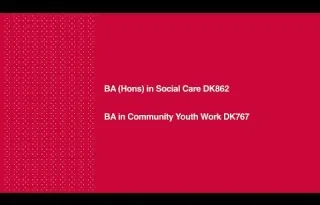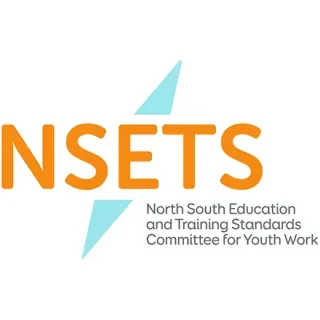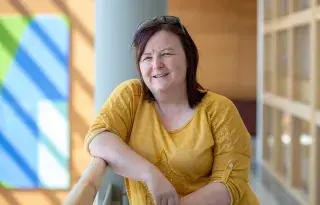BA (Hons) in Applied Youth Work — NSETS Endorsed

Search to find a different course
Course Overview
This course supports the development of youth work practitioners as professionals, with an enhanced understanding of societal impacts on young people. Emphasis on human rights, social justice, and equality are central themes within the modules. Combined with developing desired skill sets such as IT, programme development, and understanding sociology, psychology, and relationships, this course aims to educate youth workers with critical, essential skills for the youth work setting.
Students will be introduced to key concepts, practices, and policies in the field of professional youth work while examining national and global issues that can impact youth work and young people. Students develop empathetic skills in communication, psychology, and youth justice while experiencing two different forms of work placement in youth work settings.
Graduates of this course are eligible to receive an NSETS endorsement. NSETS is the North-South Education and Training Standards Committee for Youth Work, which is responsible for the professional endorsement of youth work courses on the island of Ireland.
What makes this course different
Endorsed by NSETS
This course is endorsed by the North-South Education and Training Standards Committee for Youth Work (NSETS). NSETS is responsible for the professional endorsement of youth work courses on the island of Ireland.
2 Industry Practice Placements
Students undertake 2 supervised practice placements; one in Year 2 and one in Year 3.
Highly Recommended by Graduates
100% of graduates surveyed said they were likely or very likely to study the course again (DkIT/HEA graduate outcomes survey).
Understanding the Industry
Youth Work is a rewarding profession, where practitioners work closely with young people between 10 – 25 years, in professional youth work settings. Youth workers enhance the personal and social development of young people. Youth Work as a sector, now requires a highly developed skillset, ranging from competent knowledge of policy, law, justice, and equality, to digital competency; in direct work with young people.
Career Opportunities
Future Careers:
- Youth Worker
- Garda Youth Diversion Project Worker
- Programme Co-Ordinator
- Outreach Worker
- Youth Advocacy
- School Completion Project Worker
In these areas:
- Youth Work
- Education
- Health
- Community
- Government
Course Delivery and Modules
Work placement
Students undertake 2 supervised practice placements; one in Year 2 and one in Year 3.
Professional Accreditations
This course is endorsed by the North-South Education and Training Standards Committee for Youth Work (NSETS). NSETS is responsible for the professional endorsement of youth work courses on the island of Ireland.

Education Progression
Graduates will be able to progress to Level 9 and 10 postgraduate degree courses.
MA in Leadership, Management and Innovation for Social Care
Fees and Funding
Please find information on fees and funding here: www.dkit.ie/fees
Entry requirements
In addition to the standard entry requirements below, candidates must also attend an interview.
Please note there is no Maths entry requirement for this course.
- Standard Requirements for Leaving Certificate Applicants
- Standard Requirements for UK/NI Applicants
- Standard Requirements for QQI-Further Education Applicants
Recent CAO points
How to apply
Apply on CAO
All standard entry first-year applicants must apply for entry through the CAO. See Important application dates for CAO and information for specific applicant types below:
Advanced Entry & Transfer Applications
Advanced Entry is for applicants who have previous educational achievements and/or work experience and want to be considered for direct entry into year 2, 3, or 4 of a course. This includes students looking to transfer to DkIT from another Higher Education provider.
International Application (non-EU)
International Applicants (not from or living in the EU) can apply through an agent or directly to DkIT to study this course.
Ask us a Question
If you have a question about the BA (Hons) in Applied Youth Work — NSETS Endorsed please ask it below and we will get back to you.
Breda Prunty
Disclaimer: All module titles are subject to change and for indicative purposes only. All courses are delivered subject to demand and timetables are subject to change. Elective Module options will only run subject to student numbers. The relevant Department will determine the viability of each elective module option proceeding depending on the number of students who choose that option. Students will be offered alternative elective modules on their programme should their preferred elective option not be proceeding. Award Options for Common Entry Programmes: The relevant Department will determine the viability of each award option proceeding depending on the number of students who choose either option. If the numbers for one of the Award options exceed available places, students for this option will be selected based on Academic Merit (highest grades).
